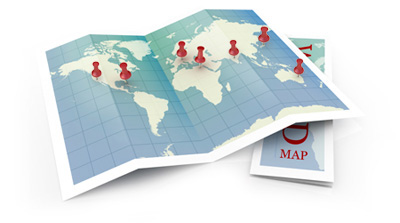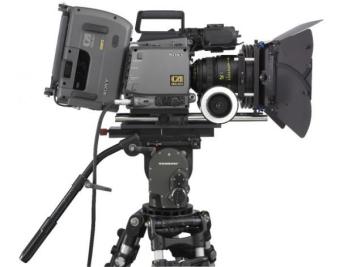Staying Connected While Working Overseas: How Technology has Shrunk the World
 In the not so distant past, a job placement overseas meant extensive time away from family and very little real-time communication with those back home.
In the not so distant past, a job placement overseas meant extensive time away from family and very little real-time communication with those back home.
I remember traveling the EurRail the summer after my first year of medical school and buying prepaid phone cards to use on the pay phones in the various European cities we visited. That was 1996. My how things have changed.
Today if you decide to take a medical post in an international location, you can almost continue relationships with friends and family back home unabated. There’s a trick to it, of course, and you have to adjust to the time-zone differences, but with the internet and all sorts of new communication tools, the world has never felt so small.
There’s so much material in the area of international communication technology that there’s really no good way to cover it all in a single post. For those who want a more thorough discussion of some of the unique ways communication tools are being used in medical expeditions, I would recommend the chapter entitled Communications Planning for the Expedition Medical Officer by Dr. Christian Macedonia that’s part of our Expedition & Wilderness Medicine textbook. For the others of you who are simply interested in hearing a quick overview of how technology has shrunk the world and taken a lot of the hassle out of working overseas, I give you the following anecdotes…
In 2003, as part of my International Emergency Medicine fellowship at Johns Hopkins, I was sent to the desert of Sudan to perform a nutritional study on a people group called the Beja. The Beja live in the northeast corner of Sudan, a very desolate, arid region where the locals live basically as they have for thousands of years. Due to the civil war in that country, the Beja had been cut off from their natural trading routes and many were starving. USAID had provided a grant to help feed these people and I was sent by Johns Hopkins to ensure that the food was getting to the needy and they were responding to it appropriately.
The project itself was very challenging and after three weeks in the desert I was ready to come home, but it was a great experience and one I wouldn’t trade for anything. One of the main memories I had of the trip was simply how isolated our group was. After crossing the border from Eritrea into Sudan, it was simply desert sand—no roads, no electricity, nothing but khaki expanses, a few distant camel trains, and an occasional burned out armoured vehicle or unexploded ordinance left behind from the war and half-buried by sediment.
Amazingly, in spite of this isolation, I was still able to talk to my family back home in the States from time to time through the use of a satellite phone, and every night, powered by a battery that had been charged during the day with solar panels, our group listened to satellite radio as if we were all hanging out together on an extended camp out. I’ll never forget how odd it seemed to be sitting out under the immense sky of that distant desert, listening to the camels while I talked to my girlfriend (now wife) on the phone and tapped my foot to the classic rock music coming in from the stereo. Surreal.
In another example, a few years later I took a new job and my wife and I moved to the country of Qatar. Initially, one of our main concerns was keeping in touch with friends and family back home. It shouldn’t have been. Between email, online video chats using either the Apple iChat technology or video Skype, and our Vonage internet phone, staying in touch was a breeze. Matter of fact, when we ordered our Vonage phone, we chose a local US phone number. That way when our friends and family from the States called, it would be a local call for them and rang our house in Qatar just like any ordinary phone line. It was crazy to talk to our loved ones on their cell phones while they were running errands, and so convenient to just walk over and call the States just like on any other household phone. The cost for this convenience? A whopping $20 per month. It was a steal.
The Vonage phone system worked so well and was so easy to use, I never felt like I skipped a beat when we moved outside the US. My writing and other projects continued without difficulty. Matter of fact, multiple conference calls relating to the planning of our Expediton & Wilderness Medicine textbook were held while I was overseas and our first Expedition Medicine National Conference was organized and planned using the internet, email, and our Vonage phone, entirely while I out of the country. I flew back to the States the day before the event and went back overseas when it was over.
 Another great device we purchased just prior to our expatriat experience was the Vonage V-Phone. The V-Phone looks and feels like a flash drive and is designed to be stored on a keychain. When my wife and I would travel to other countries, we could attach this device to our laptop, plug in a headset, and the V-Phone would enable us to make calls just like an ordinary phone. It was amazing. Currently these devices cost around $50 US, and they are well worth it. However, it should be noted that the V-Phone is not compatible with Mac laptops and they are blocked in certain countries. When we traveled to Dubai, for instance, we were disappointed to learn that not only our V-Phone but also Skype and the other internet phone services were blocked by the local government there.
Another great device we purchased just prior to our expatriat experience was the Vonage V-Phone. The V-Phone looks and feels like a flash drive and is designed to be stored on a keychain. When my wife and I would travel to other countries, we could attach this device to our laptop, plug in a headset, and the V-Phone would enable us to make calls just like an ordinary phone. It was amazing. Currently these devices cost around $50 US, and they are well worth it. However, it should be noted that the V-Phone is not compatible with Mac laptops and they are blocked in certain countries. When we traveled to Dubai, for instance, we were disappointed to learn that not only our V-Phone but also Skype and the other internet phone services were blocked by the local government there.
One last communication device worth noting…
During our travels, the coolest member in any expat community was the guy who had a device called a Slingbox hooked up to his tv. Basically, a Slingbox is a device that enables you to control your home television over the internet. Savvy expats would buy the device and install it on their home TVs back in the States (or give it as a gift to a family member or friend and install it on their TVs). When overseas, the owner could go to the Slingbox webpage, login, and watch live television while having total control over the channels and DVR. It was a great way to follow the home ball club (even though the games were usually played at 3am) or simply get a taste of your favorite TV show from time to time. What’s great is that now the Slingbox has an iPad ap that allows Slingbox owners to watch live TV on their iPads. I remember being at a lunch not long ago and noticing that golfing great Phil Mickelson, just one table away, was watching a live NFL game on his iPad via Slingbox. Slingbox is a very cool technology for those who want to say in touch with certain sporting or cultural events while living in a foreign environment.
So there’s a quick anecdotal tour of how modern technology can keep the world small and enable you to stay in touch with colleagues back home, even though you’re miles away. An international assignment does require some sacrifice at times, but modern communication technology greatly lessens the impact of such a move these days, and allows you to stay connected no matter where you live.
 Email This Article tagged:
Email This Article tagged:  Expedition Medicine,
Expedition Medicine,  International Emergency Medicine,
International Emergency Medicine,  Johns Hopkins |
Johns Hopkins |  Feb 19, 7:00 AM
Feb 19, 7:00 AM 











